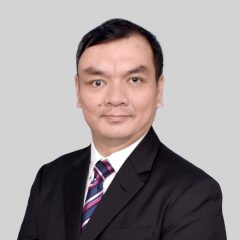In the past, as a general rule, only two state banks were engaged in foreign exchange dealings in Myanmar. Now foreign exchange licenses have been issued to eleven private banks in a significant step towards liberalizing Myanmar’s foreign exchange regime. Our team in Yangon reports…
Under the Central Bank of Myanmar Law of 1990, the Central Bank of Myanmar (the “Central Bank”) is responsible for formulating policies and prescribing regulations relating to foreign exchange transactions. The Central Bank has the right to issue or revoke licenses; inspect, supervise and regulate persons who deal in foreign currencies; determine limits on foreign exchange; and determine limits on the net foreign asset position of persons dealing in foreign exchange.
The Central Bank is also empowered to issue regulations, bye-laws, orders or directives under the Central Bank of Myanmar Law as well as under the Financial Institutions of Myanmar Law of 1990.
Exercising the powers conferred by the Central Bank of Myanmar Law and the Financial Institutions of Myanmar Law, the Central Bank issued “Authorized Dealer Licenses” to eleven private banks on 25 November 2011. The banks are: Kanbawza Bank Ltd, Cooperative Bank Ltd, Myanma Industrial Development Bank Ltd, Myawady Bank Ltd, Inwa Bank Ltd, Myanmar Oriental Bank Ltd, Asian Green Development Bank Ltd, Ayeyawady Bank Ltd, Myanmar Pioneer Bank Ltd, United Amara Bank Ltd, and Tun Foundation Bank Ltd.
Prior to the issuance of these licenses, only the Myanmar Foreign Trade Bank and the Myanmar Investment and Commercial Bank, both state owned banks, were authorized to conduct foreign exchange transactions. However as of 25 November 2011, the newly licensed private banks can now trade three hard currencies: United States dollars, Euros and Singaporean dollars.
The licensed private banks have yet to engage in foreign exchange dealings under the new licenses. It is expected that they will need to establish relations with off-shore counter parties and the precise formalities for seeking approval for foreign exchange transactions may also need to be stipulated. Therefore it may take another few months before the licensed private banks are able to offer foreign exchange services to their customers.
It should be noted that the International Monetary Fund has recently engaged the Union Government of Myanmar in discussions regarding foreign exchange reform. We have received reports that further discussions will continue in January 2012. In light of these discussions, further reforms to the foreign exchange regime are anticipated.
*Notes and disclaimer: DFDL Mekong operates in Myanmar by way of an association with Myanmar Thanlwin Legal Service Ltd. Nothing in this memo should be construed or relied upon as legal advice. While effort is taken to ensure the accuracy of the contents hereof, DFDL Mekong and its associate shall not be liable for any loss or damage caused by or connected to reliance on any information herein. Readers are urged to contact DFDL Mekong or its associate office in order to obtain appropriate legal advice, before relying on the contents hereof.
If you have any questions about this Legal and Tax Update, please send us an email to: [email protected]
15 December 2011

